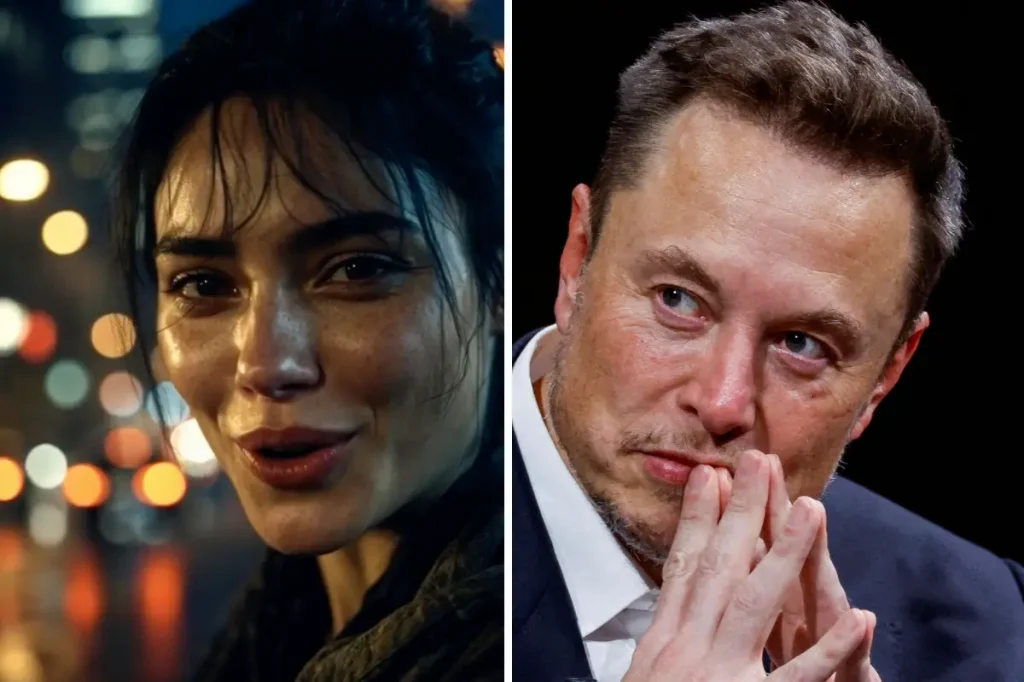Elon Musk’s AI Video Post Raises Eyebrows Amid Corporate Success
In an intriguing display of contrast between professional triumph and personal expression, Elon Musk recently shared an AI-generated video that has sparked widespread commentary across social media. The brief clip, posted in the early hours of a Saturday morning, featured a computer-generated young woman looking directly into the camera while simply stating, “I will always love you.” The timing of this post—shared shortly after Tesla shareholders approved Musk’s unprecedented $1 trillion compensation package—created a jarring juxtaposition that many users found both revealing and worthy of analysis. The video was intended to showcase the capabilities of Grok Imagine, the latest AI development from Musk’s xAI company, but instead became a lightning rod for discussions about wealth, happiness, and the relationship between technological achievement and human connection.
The public response to Musk’s post was swift and multifaceted, with many commenters focusing not on the technical achievements of the AI but rather on what they perceived as an unintentionally revealing glimpse into the billionaire’s emotional state. Some described it as “the saddest post in the history of this website,” while others noted the late-night timing of the share from his Texas compound. The commentary frequently centered on the disconnect between Musk’s extraordinary financial success and what many interpreted as a search for genuine human connection, with one commenter pointedly observing, “It really ain’t about the money if you don’t have love and someone to share it with. If this ain’t proof, I don’t know what is.” This sentiment was echoed across numerous responses, highlighting a widespread perception that even the world’s wealthiest individuals can experience profound loneliness.
This incident occurs against the backdrop of Musk’s outspoken perspective on artificial intelligence and its future impact on society. The entrepreneur has consistently positioned himself as both an advocate for AI’s potential benefits and a voice cautioning about its disruptive effects. In a recent conversation with podcaster Joe Rogan, Musk characterized AI as a “supersonic tsunami” poised to transform numerous sectors of the economy and workforce. He drew a clear distinction between physical jobs involving the manipulation of actual materials—such as cooking, farming, and manufacturing—which he believes will persist for the foreseeable future, and digital occupations centered around computer work, which he predicts AI will rapidly replace “like lightning.” This dichotomy reveals Musk’s nuanced understanding of how technological advancement might reshape employment patterns in fundamentally different ways across various sectors.
Despite the potentially concerning employment implications of advanced AI, Musk has articulated an optimistic long-term vision for humanity’s economic future. Rather than viewing widespread technological unemployment as a catastrophe, he has suggested that it could ultimately enable a transition to what he terms “universal high income”—a system that would go beyond basic income guarantees to ensure that “anyone can have any products or services that they want.” This perspective positions AI and robotics not merely as job-displacing technologies but as potential liberators from the necessity of work itself. However, Musk acknowledges that reaching this potential utopia would not be painless, warning that “there will be a lot of trauma and disruption along the way” as society adjusts to these profound changes in how work, wealth, and well-being are distributed and experienced.
The juxtaposition of Musk’s professional achievements with his seemingly personal AI-generated message highlights a fascinating paradox at the heart of our technological age. Here is a man who has accumulated wealth beyond comprehension, who leads companies pioneering revolutionary technologies from electric vehicles to space exploration to artificial intelligence, and yet who still seems to be searching for something that technology alone cannot provide. This tension between technological capability and human need reflects broader societal questions about what we truly value and how we define success. As one commenter noted in response to Musk’s post, the incident serves as a reminder that financial achievement, even at historically unprecedented levels, does not automatically translate to emotional fulfillment or meaningful connection—a truth that resonates regardless of one’s net worth.
As we continue to develop increasingly sophisticated artificial intelligence systems capable of mimicking human interaction and expression, Musk’s video post serves as a thought-provoking case study in how we relate to these technologies on a personal level. The public reaction suggests that many people still perceive a fundamental difference between authentic human connection and even the most advanced simulations of it. While Grok Imagine may represent an impressive technical achievement in generating realistic human expressions and speech, the widespread reaction to Musk’s use of it highlights our collective understanding that genuine relationships cannot be algorithmically generated. As society navigates the increasingly blurred boundaries between human and artificial interaction, incidents like this one remind us that the question of what constitutes meaningful connection in an age of technological wonder remains deeply relevant to people across all walks of life—even to those who are creating the technology itself.


